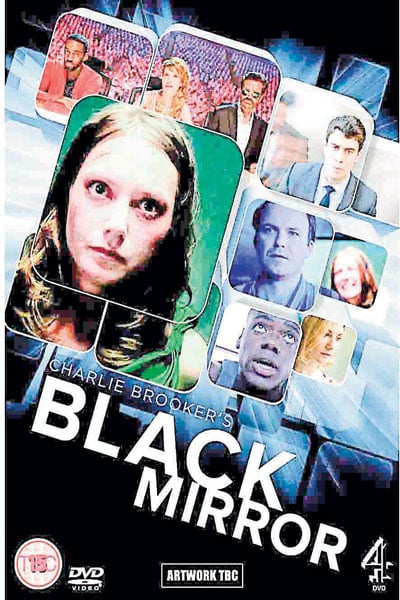Perhaps the biggest achievement of Charlie Brooker’s Black Mirror has been to scare people without having to use any supernatural themes or gory make up. This is because the looming threats faced by people in this series seem very real to us.
The series by Charlie Brooker tackles a world that is excessively dependent on technology and paints a threatening picture of the future.
Perhaps the biggest achievement of Charlie Brooker’s Black Mirror has been to scare people without having to use any supernatural themes or gory make up. This is because the looming threats faced by people in this series seem very real to us. These are ordinary people, like ourselves, going about their lives using technology and gadgets and social media much like we do. But the situations that arise due to excessive dependency on technology, in a world depicting the not-so-distant future, are scary enough to make us want to switch off our cell-phones and deactivate our Twitter/Facebook accounts for a while.
While the show has been around since 2011, having produced three seasons, it has come to the attention of thousands of people ever since it became available on Netflix. The third season was released on October 21, and consists of six episodes that shed light on the horrors of social media. These are not exaggerated horrors, mind you. For instance, the finale revolves around the life of a journalist who gets murdered after people threaten and harass her and send her angry messages on Twitter.

Why is this so important for us? Because many people participate in this behavior in real life without considering the consequences and entertaining the possibility that someone could actually die. We don’t realize that the hate we are spewing out online is actually hurting someone much like a slap or a punch would. Words hurt, and it doesn’t matter if they’re being read on a digital platform, they have the same impact.
The reason why all this is especially relevant to Pakistanis is because we’ve actually seen something like this happen right in front of our eyes as was the case of one Qandeel Baloch. People who were abusive towards Baloch and made their remarks known on Baloch’s pictures and their Facebook statuses didn’t think that this would contribute to her death. And the sad part is they perhaps still don’t feel responsible.
There is a difference between being critical and giving your opinion to being hateful and inciting violence. You can dislike someone or their work but attacking them from left and right, calling them foul names, saying things like “why doesn’t he/she just die” is dangerous. People are contributing to something much bigger and Black Mirror is a perfect reminder that nowadays, a tweet isn’t simply a tweet. It’s a whole lot more and if we aren’t careful, things could start becoming even uglier very soon.